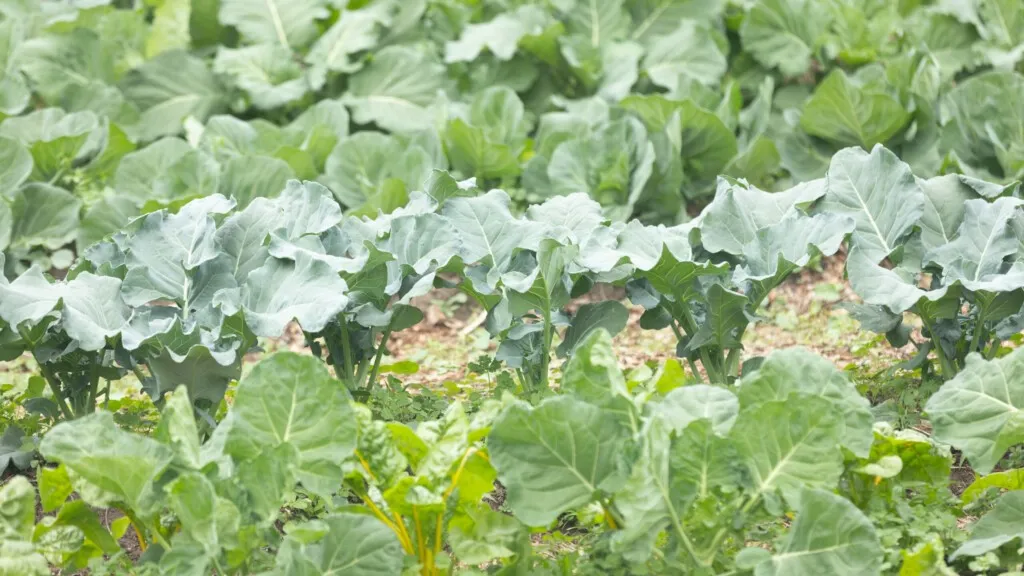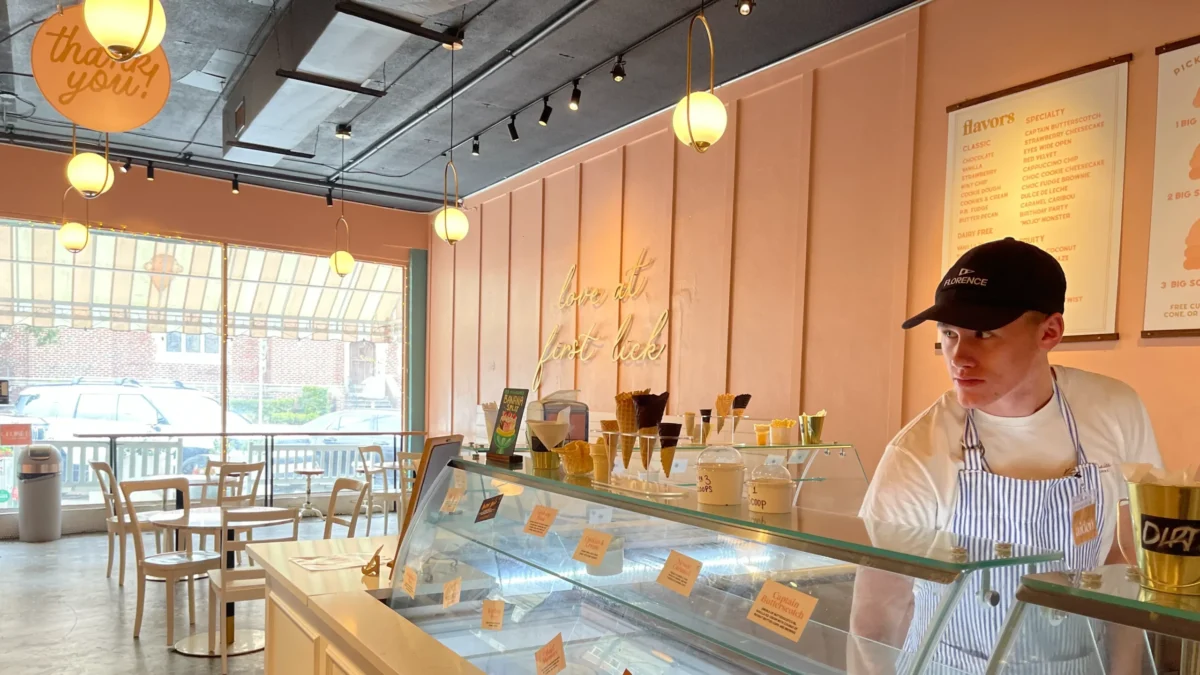In some cultures, feeding people is an act of love.
In Duval County, more than 152,000 people may have their access to food curtailed as soon as this weekend, once funding from the federal Supplemental Nutrition Assistance Program expires.
SNAP funding will run dry during a period where local farmers markets are typically busiest.
“It’s very unfortunate. But, we will make sure we do have supplies in our mutual aid box,” says Bianca Dawson, market manager for Eartha’s Farm & Market in Moncrief Springs. “We have asked our customers and our partners to donate what they can as far as clothing and hygiene products. We can supply it at our farm and ensure it’s distributed over the holidays.”
Dawson says Eartha’s Farm is busiest between September and December. She estimates a third of the people who visit the farm on Moncrief Road use SNAP.
Wilting options for food access
Every Saturday, nearly three dozen people visit the Riverside Arts Market and use their federal food assistance cards to buy vegetables, poultry and other baked goods.
Chloe Kuhn says Riverside Arts Market has already witnessed customers consider their options when purchasing food with their Electronic Benefit Transfer cards.
At this time of year, the average SNAP user at Riverside Arts Market uses $45 from the benefits card per visit to the market. Last week that average was down to $30 per customer.
Kuhn stresses that the U.S. Department of Agriculture will not place additional dollars on EBT cards; however, those with dollars available on their balance will be able to use it at the Riverside Arts Market.
“We’re already seeing it. Customers that have any leftover money on their account from October are still going to be able to receive tokens in November, if they have that money saved,” Kuhn says. “We’ve seen some folks doing that in advance.”
Riverside Arts Market and Eartha’s Farm & Market both participate in the Fresh Access Bucks program. That means someone who spends $20 from their SNAP fund balance will have $40 to spend within the market for SNAP-eligible foods.
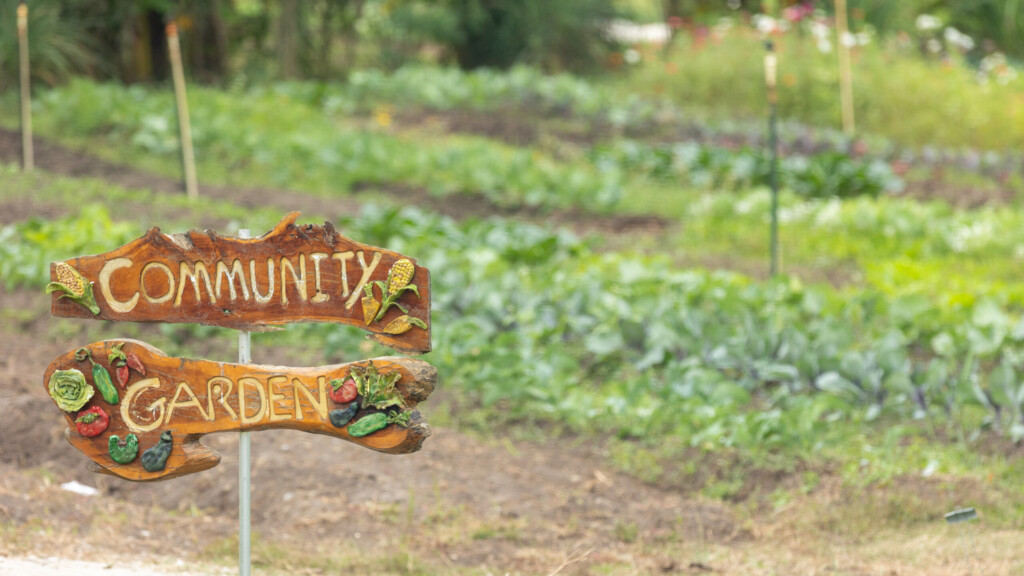
The doubling is funded by Feeding Florida through dollars it receives from the USDA. It was designed for use a farmers markets, produce stands and community grocery stores.
The Corner at Debs Store on the Eastside and the DIG Local Beaches Green Market are two other Duval County locations that participate in the Fresh Access Bucks program.
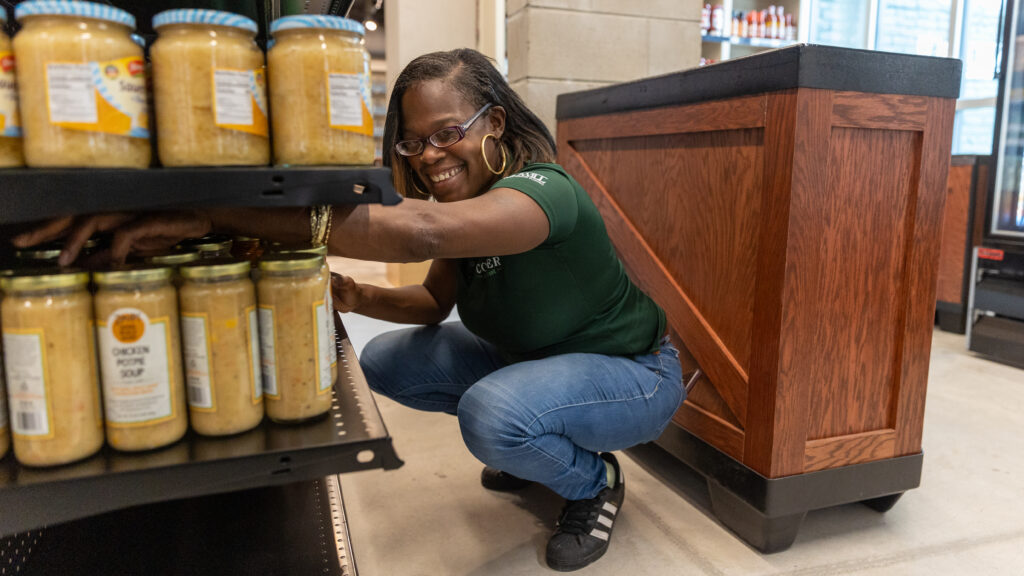
Kuhn expects many of the SNAP customers who visit her market will take out what remains in their account this Saturday.
“I’m hoping we will do half as much as we normally would in transactions, just so that it’s not so severe of a jump on our farmers, bakers and ranchers and everyone who is counting on that money,” Kuhn says. “I’m also braced for what it may be.”
Kuhn says she often witnesses the SNAP dollars circulate throughout the market, two and three times on a given weekend. Someone may purchase poultry from a farmer. That farmer turns around and buy goods from other venders at RAM.
According to data from the USDA, there are more than 42 million Americans, 2.9 million Floridians and 193,681 people in the five-county region who rely on SNAP.
Federal effect on food access
Though more than 1 in 10 Jacksonville residents use food assistance programs, the two political parties are blaming each other.
The USDA used dehumanizing language as it blamed Democrats in the U.S. Senate for the program that has existed since 1969 running out of funding on Saturday, Nov. 1.
When President Donald Trump signed the One Big Beautiful Bill Act in July, the Congressional Budget Office analyzed that it would result in more than $180 billion in funding cuts for the SNAP program over the next decade. It also transferred some of the program’s administrative costs from the federal government to individual states.
An analysis from the Brookings Institute that was published in October stated that cuts to SNAP funding would diminish the program’s ability to serve as an economic stabilizer for families.
“Conditioning SNAP eligibility on work when the economy contracts and/or labor market conditions are poor will penalize workers who have recently lost their jobs or income, making it harder for them to get back on their feet and back to work,” the Brookings report stated.
Connecting communities through food access
Dr. Hilary Seligman noted in 2023 that food insecurity reverberates in school environments.
Seligman is a professor of medicine who studies food insecurity at the University of California, San Francisco. She said food insecurity plays a role in behavioral problems in schools, absenteeism as well as academic performance.
Earlier this year, Seligman and Dr. Isabel R. Ostrer noted in the Journal of the American Medical Association that there are racial disparities in food security. “Structural racism, which may limit opportunities for wealth building, education and employment in Black and Latino households contributes to this increased risk.”
Seligman says there is a mistaken assumption that people with lower incomes want to eat a healthy diet. Her report from earlier this year noted that community-level nutrition programs can mitigate food insecurity.
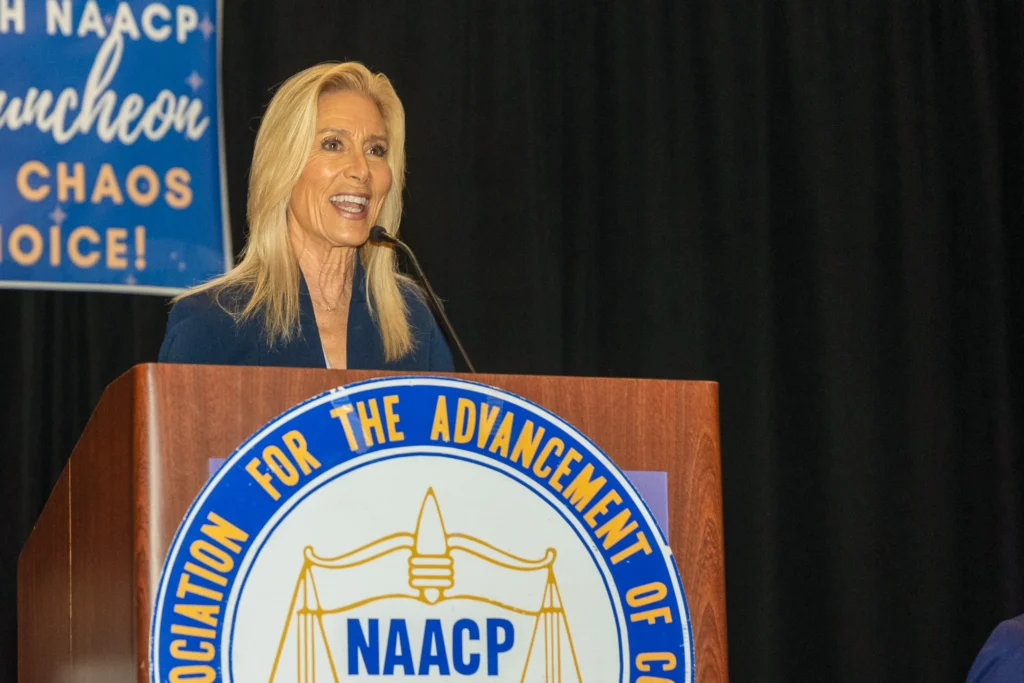
Jacksonville Mayor Donna Deegan told a group at the Jacksonville NAACP’s Freedom Fund luncheon on Wednesday that her administration treats access to healthy food as a fundamental right and not a luxury.
Deegan’s office says it is working with local faith and nonprofit leaders to address the possibility that SNAP funding evaporates. It expects to share additional information about those initiatives on Nov. 5.
Deegan highlighted food insecurity as an example of Jacksonville’s decades-long inequities.
Eartha’s Farm & Market is in the heart of a food desert in Northwest Jacksonville. Many of the retailers that accept SNAP benefits are convenience stores, not grocery stores with access to fresh produce.
Dawson says partnerships with the Early Learning Coalition and Blue Zones Jacksonville has allowed produce grown at the farm to be accessible in pockets of Northwest Jacksonville where grocery stores are often miles apart.
Eartha’s Farm & Market expects to rely on community pop-ups and partnerships to distribute harvested food so it does not go to waste amid the SNAP uncertainty.
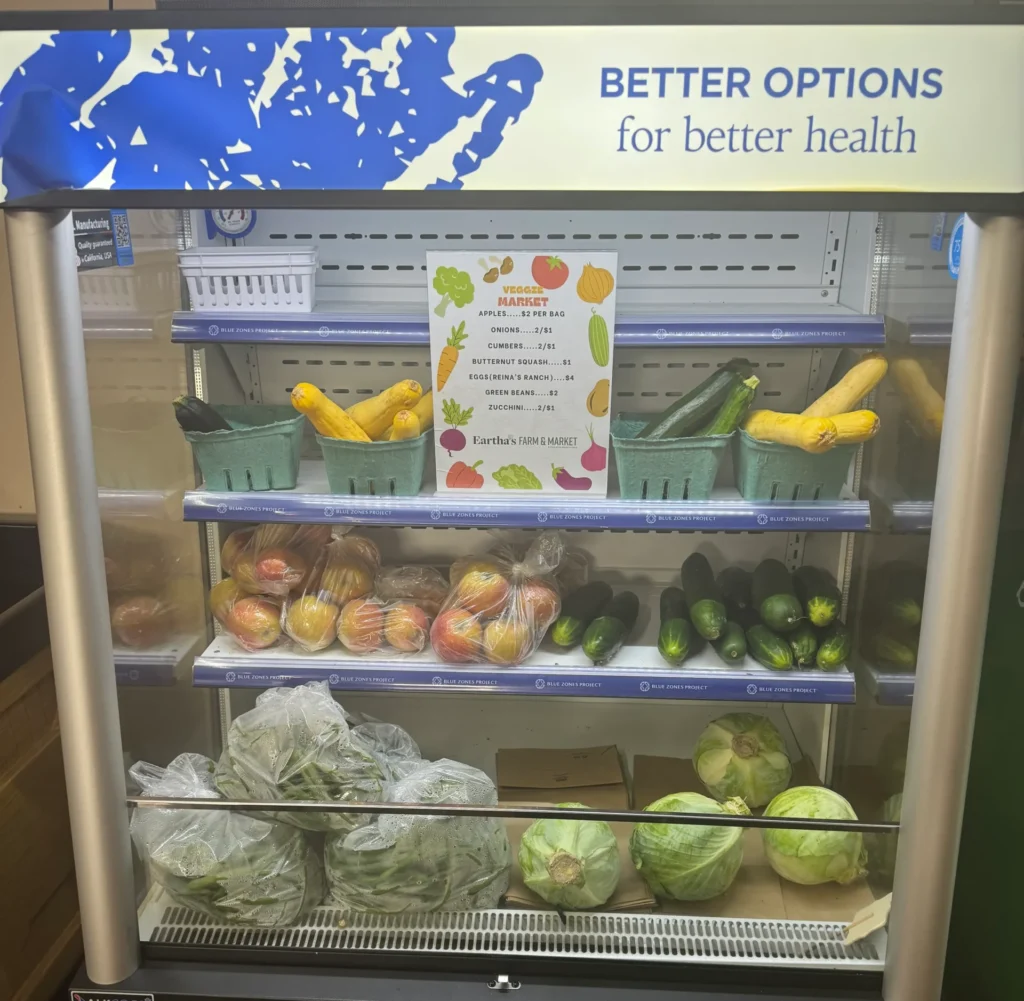
One of those connections is with Durkeeville + Co., which uses a refrigerator provided by Baptist Health and Community First Credit Union to sell collard greens, bananas, onions, sweet potatoes, cucumbers and eggs from Reina’s Ranch, a local farm in the Picketville community.
“You think it doesn’t affect you because you don’t have to get benefits,” Dawson says. “(It’s) going to have an impact on you. We all are part of the same community and we have to make sure that everyone in our city is taken care of.”



